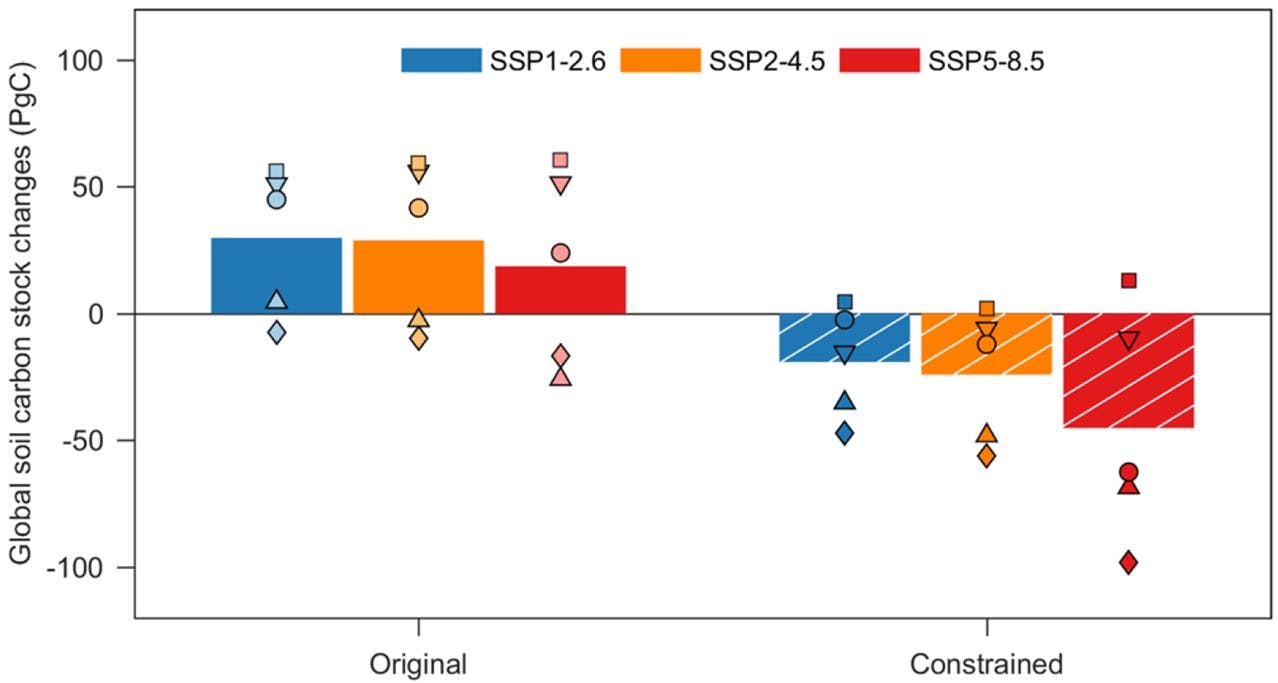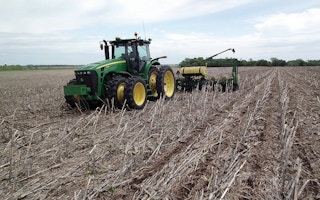The earth beneath our feet is a huge reservoir of organic carbon. One that may be slowly leaking greenhouse gases and jeopardising efforts to keep global warming within safe levels, researchers warn.
To continue reading, subscribe to Eco‑Business.
There's something for everyone. We offer a range of subscription plans.
- Access our stories and receive our Insights Weekly newsletter with the free EB Member plan.
- Unlock unlimited access to our content and archive with EB Circle.
- Publish your content with EB Premium.
In a study published on Tuesday in the Nature journal, scientists from China, France and the United Kingdom say soil worldwide will overall shed, instead of absorb, billions of tonnes of carbon by the end of the century, even if global warming is kept low.
The results mean that the world’s carbon budget for staying under 1.5°C of global warming – what experts say is a safety limit – could be 66 per cent smaller than previously estimated. The world had already been on track to bust that budget within a decade without the latest adjustment, due to continued use of fossil fuels.
“The vanished capacity of soils to sequester CO2 suggests that a more aggressive strategy toward emissions reduction is required to realise the pledges of the Paris Agreement,” the study said.
Even a more lenient target of keeping temperature rise to 2°C above pre-industrial times – a level countries globally agreed to stay “well below” under the 2015 Paris Agreement – will be 15 per cent tougher with the new calculations.
Experimental data
Some computer models in the past have found soil to be a good storage for man-made carbon emissions. But the results changed drastically when researchers incorporated data from hundreds of long-term soil studies at sites ranging from tropical forests to the deep Arctic.
Many of the experiments have found soil to be getting rid of its carbon content faster than thought, especially in the polar regions where plant cover is sparse.

When a computer model was “constrained” by observational data on soil carbon, it predicted that global soil will be a global emitter of carbon across all climate change scenarios (of increasing severity from blue to red), instead of a sink. Image: Ren, S., Wang, T., Guenet, B. et al. [Click to enlarge]
As such, where a model would predict global soils trapping about 30 billion tonnes of carbon by the end of the century with mild climate change, the updated formula returned a 19 billion tonne discharge instead.
In an extreme case of global temperatures rising past 4°C, the soils would not just reduce their storage to 18.6 billion tonnes of carbon, they would release over 45 billion tonnes, the latest simulations predicted.
Soil carbon management
Soil carbon management is gaining popularity worldwide, especially in large agricultural economies. It is believed soil and plants store a third of man-made emissions.
The United States government is supporting farmers in adopting practices such as reducing tillage and growing cover crops to reduce soil carbon loss. In Australia, with state backing, over 200 new soil carbon projects were registered in 2022, double that of 2021 and almost quadruple of 2020.
Farmers in both countries utilise carbon offsetting to fund their initiatives, on the basis that their efforts represent additional carbon reductions. Scientists also say healthy soils can help purify water and produce more food.
However, past research has questioned the capacity of soils to store carbon emissions for sufficiently long periods, and the latest study only adds to the complexities.
The authors also said their work supports the notion that global soils will release more carbon as the Earth warms, which in turn exacerbates the heating in a “strong positive carbon feedback”. Such interactions are “substantially underestimated” in current Earth system models, they added.
The research adds to growing evidence that a heating world is triggering stronger positive feedback loops – for instance also in rivers that spew greenhouse gases.
Experts warn that left unchecked, such trends could lead to “tipping points”, after which climate events could spiral out of control. There is already suspicion within the scientific community that Earth is recently warming faster than expected.
At last month’s COP28 global climate summit in the United Arab Emirates, countries globally agreed to “transitioning away” from fossil fuels to limit climate change to 1.5°C. As it stands, national efforts will only keep the heat to under 2.5°C, the United Nations estimates.

















